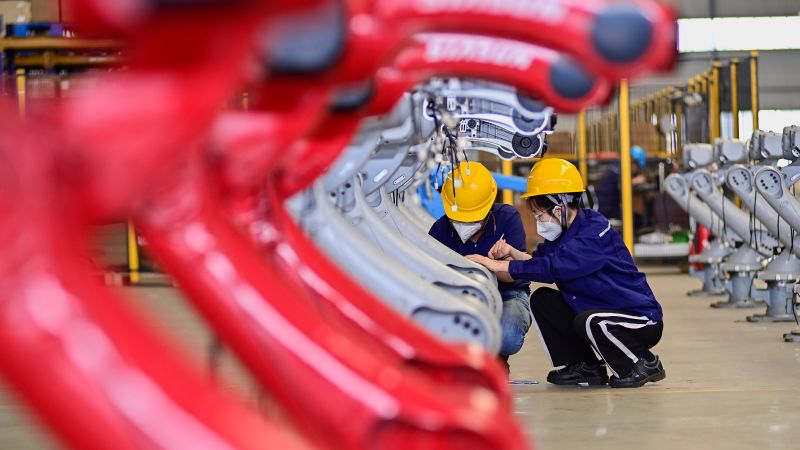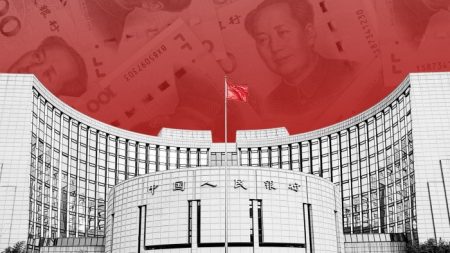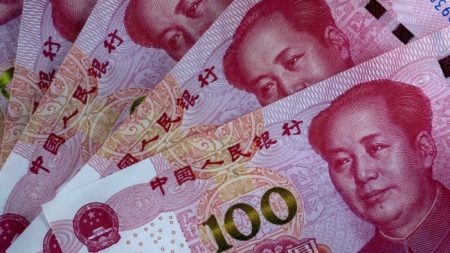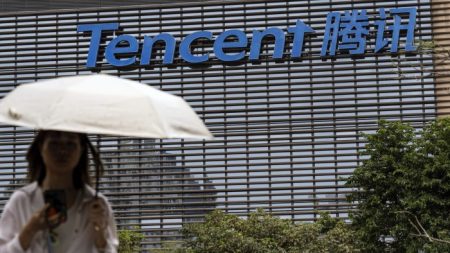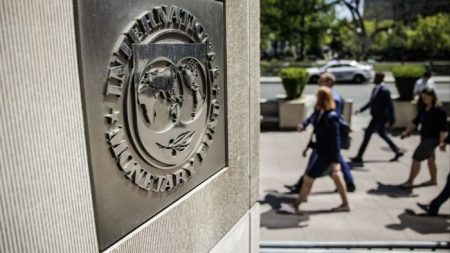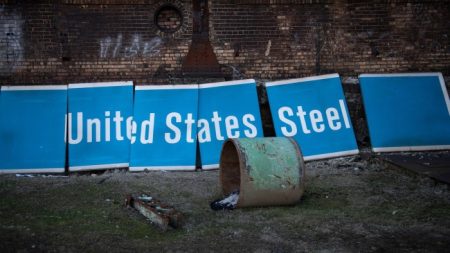A version of this story first appeared in CNN Business’ Before the Bell newsletter. Not a subscriber? You can sign up right here. You can listen to an audio version of the newsletter by clicking the same link.
Chinese economic activity has hit a soft spot in recent weeks and Hong Kong’s equity markets have flirted with bear territory as a result.
That’s also bad news for US companies with major exposure to China — and a number of S&P 500 companies stand first in the line of fire if the situation worsens.
What’s happening: China’s swift economic reopening in December after three years of severe pandemic restrictions was hailed as a catalyst that would send global growth into overdrive.
Pent-up consumer demand and a resurgence of manufacturing by the world’s second-largest economy is expected to drive about 35% of the world’s growth in 2023, according to recent projections from the International Monetary Fund.
China’s reopening has had positive effects: Factories had their best month in nearly 11 years in February and the country’s economy grew by 4.5% in the first quarter of the year. But recent data shows such positivity may have been short-lived.
Chinese exports fell 7.5% year over year in May as global demand weakened. Recent data shows that China is also contending with worse-than-expected consumer spending, slowing manufacturing and weak home sales. Youth unemployment has hit 20% in urban areas, according to official data, a record high.
Growing geopolitical tensions between Washington and Beijing have spooked investors, driving market volatility. A recent crackdown on American consulting companies like Bain, Capvision, Mintz Group and Micron Technology
(MU) has worried multinational businesses, said US Ambassador to China Nicholas Burns on Wednesday.
“Investor views about China remain pessimistic, partly because of skepticism about near-term growth momentum and partly because of worries about the longer-term outlook,” wrote Goldman Sachs analysts in a note on Tuesday.
China, home to more than 1.4 billion people, saw its population drop in 2022 for the first time in more than 60 years. A shrinking population means lower consumption. When Beijing made the announcement in January, global stocks were roiled. The Dow fell by 300 points and the Nasdaq Golden Dragon Index, which follows Chinese firms on American exchanges, fell by 4%.
What it means for markets: US-based companies doing business in China stand to lose if the economy continues on a downward trajectory. Companies like Apple
(AAPL), Intel
(INTC), Ford
(F) and Tesla
(TSLA) have large manufacturing ties to the country. Others, like Starbucks
(SBUX) and Nike
(NKE), rely on Chinese consumers.
Earlier this year, Bank of America
(BAC) compiled a list of the S&P 500 companies with the highest exposure to China. Topping the list was Las Vegas Sands
(LVS), down nearly 6% this month, with 68% of its sales coming from China.
Qualcomm
(QCOM), with a 67% exposure rate to China, issued disappointing forward guidance during earnings last month, citing China’s slow recovery.
Tesla, Intel, Nvidia
(NVDA), Wynn Resorts
(WYNN) and MGM Resorts
(MGM) were also among the 25 S&P 500 companies with the most exposure to China.
Companies that generate more than 50% of sales outside of the United States saw an earnings decline rate of -10.2% in the first quarter of 2023, according to FactSet data. Companies that generated more than 50% of sales inside the United States, however, saw an earnings growth rate of 2.7%.
Meanwhile, Chinese stocks trading in Hong Kong, just barely avoided entering bear territory this month: The Hang Seng index was down 19.6% on May 31 from its January high and the Golden Dragon China Index has fallen 5.6% so far this year.
JD.com
(JD), one of the largest Chinese companies trading in the United States, has fallen by nearly 36% this year. Morgan Stanley and Goldman Sachs Group have both lowered their forecasts for Chinese equity indexes.
The bright side: There’s still potential for upside, say economists. Analysts at Nomura and Barclays forecast Chinese economic growth of almost 8% for the second quarter.
Ayaz Ebrahim, JPMorgan Chase’s emerging markets and Asia Pacific equities portfolio manager, recently said on Bloomberg TV that the bank is adding more shares of Chinese stocks to its portfolio in a bet that the Chinese government will back floundering companies and boost valuations.
Wildfires in Canada have smothered large swaths of the United States in a thick plume of toxic smoke, leading to air quality warnings and advisories to stay inside. But fine particles from the smoke can make their way indoors. Air purifiers can be helpful with filtering out the pollution.
Searches on Google have increased 16 fold since Monday, according to Google trends.
Whirlpool
(WHR), one of the largest home goods manufacturers in the world, has seen its stock surge 13.2% over the past five days and by 6.4% on Wednesday alone. The company says that its HEPA purifiers can remove up to 99.97% of bad particles from air.
Shares of Carrier Global (CARR), which makes residential and industrial air purifiers and HVAC units, have gained nearly 11% over the past five days.
Johnson Controls (JCI), which has a number of air filters on the market, has also seen its stock price soar. Shares are up by 8.5% over a five-day period.
The air purifier market is poised to grow as climate change increases air pollution and exacerbates breathing difficulties. A Market Insights report forecasts that the industry is expected to grow at an annual compound rate of 10.8% to $2.9 billion by 2025, and $4.8 billion by 2030.
Outdoor air pollution could cause 6 to 9 million premature deaths a year globally by 2060 and cost $2.6 trillion annually because of sick days, increased medical bills and reduced productivity, according to an Organisation for Economic Co-operation and Development report.
Sir Ivan Menezes, who served for a decade as chief executive of the largest spirits maker in the world, has died at age 63 after a short but aggressive illness.
Diageo confirmed Menezes’ death on Wednesday, just two days after the company announced that he was stepping down as CEO following complications from an emergency surgery on an ulcer.
Menezes was born in 1959 in Pune, India. He held UK and US citizenship, as well as overseas citizenship for India. He joined Diageo at its creation in 1997 and became CEO in July 2013. He was knighted in January by King Charles III for services to Business and to Equality. Prior to his illness, he was expected to retire at the end of June. COO Debra Crew, who was set to become CEO on July 1, will take on the role of interim chief executive, effective immediately.
Menezes, who ran the $93 billion company behind Johnnie Walker whiskey, Smirnoff vodka, Guinness and Tanqueray gin, was well known as a champion of diversity in the workplace.
About 40% of Diageo’s senior positions are held by women and 37% of its leaders are ethnically diverse.
“Ivan was undoubtedly one of the finest leaders of his generation,” said Diageo chairman Javier Ferrán in a statement on Wednesday. “Ivan was there at the creation of Diageo and over 25 years, shaped Diageo to become one of the best performing, most trusted and respected consumer companies.”
Under his leadership, Diageo’s market value nearly doubled from $52 billion to $93 billion. Menezes also successfully guided Diageo through the Covid-19 pandemic, delivering a net sales value 36% larger in 2023 than in 2019, Diageo said.
Menezes also served as a non-executive director of Tapestry, chairman of the Council of The Scotch Whisky Association and as a member of the global advisory board of Northwestern University’s Kellogg School of Management.
Read the full article here



